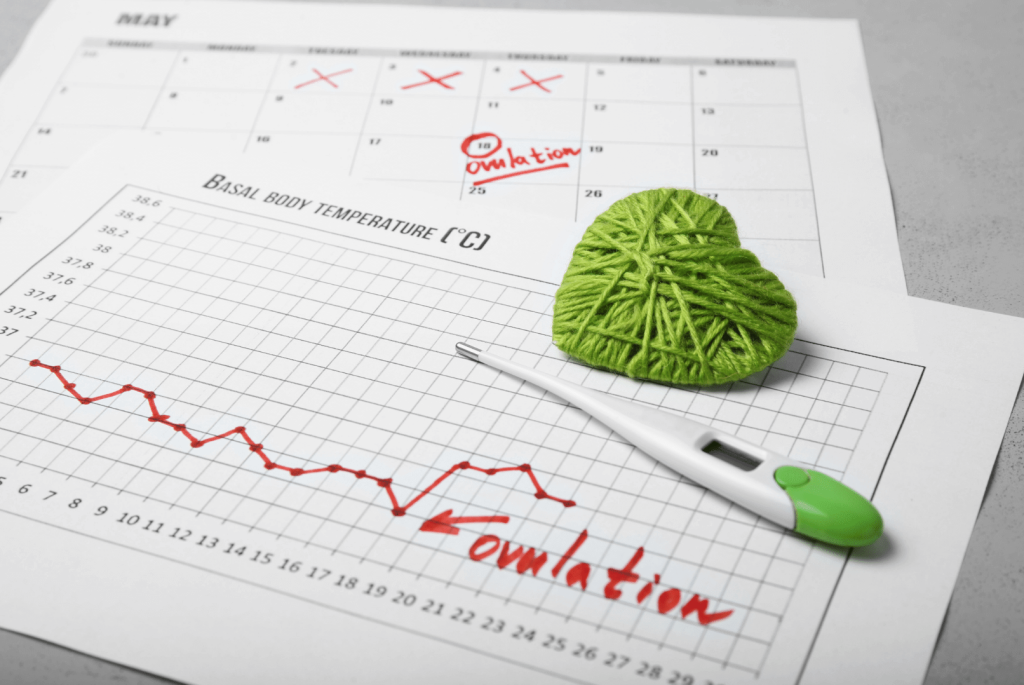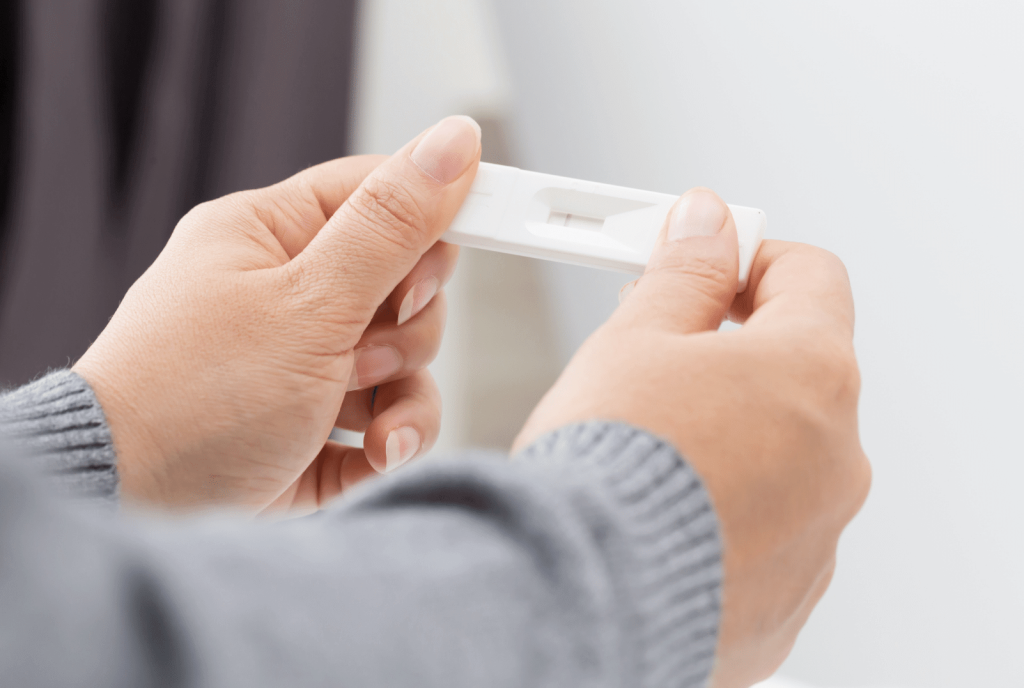
Part 2: Essential Nutrients for Fertility


Part 2: Essential Nutrients for Fertility
Dr. Aumatma Simmons, ND, of Holistic Fertility Institute, emphasizes the importance of nutrition in fertility. And we’re not just talking about women. Fertility involves both genders. Men’s nutritional status plays a huge role in fertility as well.
After fixing their nutritional issues, Dr. Simmons sees many couples become pregnant, even those with unexplained repeat miscarriages. It’s incredible what the right diet can do.
If you’re trying to conceive, don’t overlook the power of nutrition. In this article, we’ll review the nutritional factions that influence your fertility and discuss diet changes based on what’s best for you.

Elevated Lifestyle-Related Oxidative Stress
Have you ever heard of oxidative stress? It happens when there’s too much of a reactive oxygen species (ROS) molecule in your cells. ROS are little molecules that contain oxygen and can affect many different body parts. They serve as messengers throughout your body and influence normal body functions.
Usually, antioxidants keep the ROS levels under control. However, when ROS levels are high, and antioxidant levels are low, the imbalance can damage your cells. Excess oxidative stress in reproductive tissues can reduce fertility in both men and women.
In men, excess oxidative stress may reduce sperm count and movement, and inhibit sperm’s ability to fertilize an egg. In women, it can contribute to endometriosis, PCOS, and unexplained infertility.
Two literature reviews focused on the effects of oxidative stress in men and women. Researchers identified shared lifestyle factors that can increase oxidative stress, including:
- Drinking alcohol: Just two drinks daily can increase women’s infertility risk.
- Smoking tobacco: Exposure to both first and second-hand smoke can delay the time to conception in women.
- Exposure to environmental pollutants: Pesticide exposure increases the risk of miscarriage.
- Excessive physical exercise: Can lead to the overproduction of ROS
- Obesity: Increased inflammation due to obesity induces the production of ROS.
- Not getting enough dietary antioxidants: Contributes to ROS imbalance.
You may also be putting your body at risk of oxidative stress if you’re not getting enough fiber in your diet. Dietary fiber may help regulate it. A systematic review of dietary patterns determined that plant-based diets, typically high in fiber, may lower oxidative stress.
Elevated Cardiovascular and Metabolic Risk
Anything that elevates cardiovascular and metabolic health risks can interfere with fertility and pregnancy. Let’s take a look at some individual factors.
Obesity
Obesity, defined as having a body mass index (BMI) of 30 or higher, can wreak havoc on both men’s and women’s fertility. It disrupts the intricate hormonal balance that is crucial for optimal reproductive function.
Let’s take a closer look at the impact of obesity on women’s fertility based on a literature review spanning nearly three decades (1994-2022). Obesity brings forth a host of fertility challenges, including:
- Lower sex drive
- Irregular ovulation
- Lower sex hormones, excess body fat, and increased leptin and insulin are associated with reduced egg quality.
- The lining of the uterus, known as the endometrium, becomes less welcoming, making it harder for fertilized eggs to implant.
- Increased likelihood of placental abnormalities
- Increased miscarriage risk of 40%, compared to 15% in individuals with a normal weight
Obesity also creates a wide range of fertility concerns in men. A literature review highlighted the adverse effects, which include:
- Low-grade systemic inflammation leading to impaired sperm and sex hormone production
- Increased scrotum temperature resulting in low sperm quality
- Erectile dysfunction
- Increased sperm cell death and sperm fragmentation (damaged sperm)
- Increased risk factor for insulin resistance leading to poor sperm quality
Healthy weight and body composition are pivotal in restoring hormonal balance, and in many cases, fertility, for both men and women. Adopting a balanced diet and engaging in regular physical activity can help achieve a healthy weight, benefiting overall health and fertility.

High Blood Pressure
When it comes to fertility, high blood pressure can throw a curveball into the mix, affecting both men and women. Around 50% of men and about 44% of women have high blood pressure.
For women, high blood pressure can disrupt hormone balance, make it harder to conceive, and significantly increase the risk of pregnancy complications. A study of 1,220 women focused on the effects of high blood pressure on those attempting pregnancy and with a history of pregnancy loss.
Researchers determined that the risk of pregnancy loss increases by 18% per 10 mm Hg increase in diastolic blood pressure (the bottom number), and 17% per 10 mm Hg increase in mean arterial pressure.
Researchers aren’t sure precisely how high blood pressure affects women’s fertility, but pose the following possibilities:
- This leads to dysfunction in ovulation, making it challenging to identify fertile windows and time intercourse for conception
- Decreases vaginal lubrication
- Impedes blood flow to the uterus, potentially compromising the development and implantation of a fertilized egg.
High blood pressure concerns extend to pregnancy. It increases the risk of developing preeclampsia and eclampsia, characterized by high blood pressure and organ damage, during pregnancy. This poses serious complications for both fertility and maternal health.
Now, let’s shift our focus to men and explore how high blood pressure can impact their fertility.
A literature review explored the effects of hypertension on fertility. Researchers determined that compared to men with normal blood pressure, men with high blood pressure are more likely to have at least one semen abnormality, including lower:
- Semen volume
- Sperm mobility
- Sperm count
Having high blood pressure also increases men’s risk of erectile dysfunction two-fold. This not only affects the chances of having a baby but also disrupts their sex life.
Medication to lower high blood pressure may not be the answer to your fertility issues. There is growing concern regarding some medications like beta-blockers and diuretics having side effects that impact fertility. The good news is that it’s truly a diet and lifestyle condition, especially in younger people.
If high blood pressure concerns you, discuss with your healthcare professional to find a balance between managing hypertension and optimizing your fertility.
High Cholesterol
Healthy cholesterol levels play a significant role in fertility and maintaining a healthy balance is essential. Cholesterol is critical for steroid production in both men and women and the development of potential eggs.
A study of 501 couples trying to conceive explored the connection between cholesterol levels and time to conception. Researchers followed the couples for one year or until they became pregnant. Couples who did not get pregnant during the one year had the highest cholesterol levels.
Researchers determined that high cholesterol is a risk factor for reduced fertility as a couple, but also the man and woman independently of each other.
Research proposes a few possible reasons for these results:
- High cholesterol is also associated with increased amounts of body fat which can decrease sperm quality.
- An imbalance in cholesterol may affect the production of testosterone and estrogen, which, in turn, affects sperm production and egg quality
- High cholesterol is associated with impaired vascular health, including reduced blood flow to reproductive organs. Poor blood flow to the testes can decrease sperm quality and production.
High cholesterol levels are also linked to conditions like obesity, polycystic ovary syndrome (PCOS), and metabolic disorders, which can impact fertility.
Poor Blood Sugar Regulation
Fertility issues due to poor blood sugar control don’t just affect women with PCOS. High blood sugar levels can negatively affect fertility in both men and women. In women, high blood sugar levels can cause:
- Irregular menstrual cycles
- Problems with ovulation
- Higher risk of miscarriage
Hormonal changes during pregnancy cause your cells to use insulin less effectively and make you naturally more insulin resistant. Insulin resistance leads to higher blood glucose levels. If you already have some insulin resistance due to PCOS or otherwise, your chances of experiencing trouble getting pregnant or complications during pregnancy increase.
A massive study of over two million Chinese couples explored the relationship between maternal pre-pregnancy glucose levels and fecundability. Fecundability is the probability that you will get pregnant in one menstrual cycle.
Over one year, the pregnancy rate for women with normal glucose levels was seven percent higher than those with moderately high glucose levels. The higher the glucose levels, the longer it took women to conceive.
In men, high blood sugar levels can affect sperm quality and reduce fertility. Research suggests that it’s because high blood sugar can lead to the oxidative stress we discussed above. It damages sperm cells and reduces their ability to fertilize an egg.
A recent meta-analysis examined the effects of high blood sugar on male fertility, including 1,386 patients with diabetes. Compared to a control group, patients with diabetes experienced:
- Low semen volume and sperm count
- Reduced sperm movement
- Decreased testosterone levels
Erectile dysfunction can also arise in men with high blood sugar levels.

Increased Blood Clotting Risk
The concerns regarding the effects of blood clotting on fertility are mainly studied in women. Because your chances of clotting increase during pregnancy, this is something to pay particular attention to if you know it’s an issue for you.
Some particular areas identified by research when it comes to blood clots include:
Impaired Implantation
After fertilization, the embryo travels down the fallopian tube and implants into the uterine lining. Blood clotting disorders, such as antiphospholipid syndrome (APS) or thrombophilia, can increase the risk of blood clot formation within the uterine blood vessels. This impairs the implantation process and can lead to recurrent miscarriages.
A study on blood clotting in 30 healthy IVF patients identified hypercoagulation as the dominant cause of IVF failure. Those with hypercoagulation experienced failed implantation at a much higher rate than those with successful IVF.
Reduced Blood Flow
Blood clotting disorders can cause the formation of abnormal blood clots that may obstruct the blood vessels supplying the reproductive organs. Like with high cholesterol or homocysteine, this can reduce blood flow to the ovaries, affecting their normal function. During pregnancy, these blood clots can lead to decreased blood flow to the placenta and the uterus.
Not Eating Enough or Being Too Restrictive with Diets
We need enough energy from food for our bodies to function optimally. There may be some potential fertility health benefits of mild calorie restriction, such as increasing egg quality. However, over-restriction of calories or specific nutrients could reduce fertility.
A literature review of human and animal studies explored the relationship between calorie restriction and female reproduction. Here are some of the highlights of their findings. Calorie restriction can:
- Disrupt hormonal balance leads to delays or ceasing of ovulation, making it more challenging to conceive.
- Impair the development and function of your uterine lining.
- Lead to early menopause onset
While there are very few studies on calorie restriction in men, an animal study examining the effects of calorie restriction on male production focused on sperm quality. Researchers determined that hormonal changes due to excess calorie restriction led to sperm defects.
The key here is balance. If either prospective parent is overweight or obese, it might be beneficial to lose weight without triggering the starvation survival response. Otherwise, it’s crucial to give your body the signals of nutritional abundance as you try to conceive.
Autoimmune Disease and Inflammation from Food
Autoimmune diseases and fertility are intricately intertwined. When the immune system turns against your body’s tissues, it can impact your ability to conceive and carry a pregnancy even before you begin to experience the disease’s symptoms.
A literature review examined numerous complications that arise with autoimmune diseases. They found that certain autoimmune disorders can increase the risk of infertility and recurrent pregnancy loss, such as:
- Anti-phospholipid syndrome (APS)
- Lupus
- Type 1 diabetes
- Thyroid autoimmune diseases like Grave’s and Hashimoto’s
Autoimmune infertility can manifest in different ways. It may involve:
- Abnormalities in sperm quality or function
- Ovulatory dysfunction
- Impaired implantation of the fertilized egg
Autoimmune factors can also contribute to recurrent pregnancy loss by disrupting placental development or causing inflammation within the uterus. In rare cases (1 out of every 15,000-22,000 live births), maternal autoantibodies can cause a complete congenital heart block in infants.
Autoimmune diseases often come with inflammation. In autoimmune diseases, the immune system mistakenly identifies normal cells and tissues as foreign invaders and launches an immune response against them. This immune response often involves inflammation, which is the body’s natural defense mechanism against harmful substances.
While this inflammation is meant to protect the body, the immune system becomes dysregulated in autoimmune diseases. The immune cells release inflammatory molecules that can lead to chronic, persistent inflammation.
A literature review exploring inflammation and reproduction highlighted the many adverse effects, including:
- Menstrual cycle disruption
- Implantation failure
- Endometriosis
- Recurrent miscarriage
- Disruption of the normal processes that enable the release of eggs during ovulation
In men, inflammation damages the DNA in sperm, which reduces sperm quality.
Consuming a diet high in inflammatory foods can exacerbate inflammation. Previously, association studies link red meat and high-fat meals with inflammation, although these don’t prove that these foods cause inflammation. More recently, some studies show that certain gut irritants can contribute to inflammation and autoimmune disease processes.
Aside from avoiding fried, sugary, processed, and refined foods, some clinical trials are examining elimination diets like the Autoimmune Paleo (AIP) Protocol to manage autoimmunity and inflammation.
The AIP diet eliminates most gut irritants, such as whole grains, nightshade vegetables, legumes, and nuts, while focusing on high-quality meats, seafood, and vegetables. Many AIP clinical studies report significantly improved quality of life and symptoms burden, especially in Hashimoto’s and inflammatory bowel disease.
What’s the Best Fertility Diet?

In the realm of fertility and conception, the pursuit of a healthy diet is often a top priority for many hopeful parents. With countless diets and nutritional advice flooding the internet, it’s easy to become overwhelmed and confused. Many doctors and couples believe what works is:
- Minimizing meat, trans fat, and salt
- Eating whole grains and legumes
However, the truth is that when it comes to fertility, there is no one-size-fits-all diet that guarantees success. Just as each person is unique, so too are their nutritional needs and underlying factors affecting fertility. In this journey towards creating life, it’s essential to understand that finding the right balance of nutrients requires a personalized approach.
We at BiOptimizers believe the best fertility diet is one that:
- Stabilizes your blood sugar and maximizes your metabolic health
- Provides all the nutrients you need to build and grow a healthy fetus
- Keeps your inflammation at healthy levels.
It’s essential to work with your doctor and rely on your body’s feedback through blood tests and overall well-being rather than just follow generic diet advice. Let’s look at what science says about different diets and fertility nutrition.
Ketogenic Diet
According to some case studies on Diet Doctor, some women with significant blood sugar control issues who follow a ketogenic diet:
- Get pregnant more easily
- Have easier pregnancies
- Feel wonderful throughout their pregnancies and postpartum
Some of the overall health benefits that can spillover to fertility include:
- Better blood sugar control and insulin stability
- Reduced blood pressure
- Reduced inflammation
A ketogenic diet may also be promising for women suffering from PCOS. A six-month study of four women with PCOS assessed their likelihood of getting pregnant. Following a ketogenic diet, all of the women began having regular periods. Two successfully got pregnant without ovulation assistance.
Paleo
The Paleo diet, based on the idea that we should eat more like our hunter-gatherer ancestors, is more restrictive. It encourages increased animal protein consumption while eliminating grains and dairy.
A meta-analysis exploring the health benefits of the paleo diet determined that, compared to control diets, those who ate paleo experienced:
- Lower blood pressure
- Lower cholesterol
- Reduction in blood sugar levels
Other studies find benefits like:
- Reduced inflammation and oxidative stress
- Improved blood sugar control
These are all excellent benefits, but concerns about particular aspects may still exist. For example, one study explored the effects of a high-protein diet on healthy women. A high-protein diet was associated with lower testosterone levels. You need healthy testosterone levels to support implantation. However, in this case, context also matters as women who lift weights and eat high proteins are more likely to have healthier levels of testosterone.
Because of the anti-inflammatory aspects of the Paleo diet, it might be the perfect fit if you’re suffering from an autoimmune disease.
A systematic review dug deep into the impact of a Paleo diet on autoimmune disease. Researchers highlighted the positive effects on both Grave’s and Hashimoto’s diseases. The diet may help improve the levels of autoimmune antibodies and thyroid hormone levels.
Additionally, avoiding gluten can decrease inflammation and improve the management of other autoimmune diseases by reducing intestinal permeability.
The restrictive Paleo diet could be just what you need as a couple to get pregnant, while others do fine on a healthy diet with whole grains and vegetables.
Mediterranean Diet
Health experts praise the Mediterranean diet, which draws inspiration from the traditional eating patterns of countries bordering the Mediterranean Sea, for its numerous health benefits. This diet emphasizes:
- Whole foods such as fruits, vegetables, whole grains, legumes, nuts, and seeds
- Healthy fats like olive oil
- Moderate consumption of fish, poultry, and dairy products
- Limiting red meat and processed foods.
A 2023 literature review examined the influence of diet on fertility. It highlighted the many fertility benefits of the Mediterranean diet:
- Reduced risk of weight gain
- Reduced insulin resistance and better blood sugar control, which supports healthy ovary function
- Decrease oxidative stress due to high antioxidants, which helps ovulation and sperm quality and movement
- 40% increased successful pregnancy rate in IVF couples
While the Mediterranean diet does not guarantee fertility, adopting its principles as part of a well-rounded lifestyle can enhance reproductive well-being.
Remember, individual factors and circumstances play a significant role in fertility, and dietary choices are just one aspect to consider. As always, it is recommended to consult with a healthcare professional or fertility specialist to customize your diet according to your needs and goals on the journey to conception.
Conclusion
When it comes to fertility, the importance of nutrition cannot be overstated. The impact of diet extends to both women and men, and that’s why it’s so important for both partners to focus on eating a balanced, nutrient-dense diet.
There is no one-size-fits-all solution to a fertility diet. Start by determining what nutrient deficiencies or health challenges you must overcome and work with a health professional to develop a personalized plan.
If you’re trying to conceive, pay attention to the power of nutrition. It just might be the missing piece of the puzzle that helps you welcome a healthy baby into your family.
References
- Bardaweel SK, Gul M, Alzweiri M, Ishaqat A, ALSalamat HA, Bashatwah RM. Reactive oxygen species: The dual role in physiological and pathological conditions of the human body. Eurasian J Med. 2018;50(3):193-201. doi:10.5152/eurasianjmed.2018.17397
- Ruder EH, Hartman TJ, Goldman MB. Impact of oxidative stress on female fertility. Curr Opin Obstet Gynecol. 2009;21(3):219-222. doi:10.1097/gco.0b013e32832924ba
- Migdal C, Serres M. Espèces réactives de l’oxygène et stress oxydant. Med Sci (Paris). 2011;27(4):405-412. doi:10.1051/medsci/2011274017
- Mannucci A, Argento FR, Fini E, et al. The impact of oxidative stress in male infertility. Front Mol Biosci. 2021;8:799294. doi:10.3389/fmolb.2021.799294
- Agarwal A, Aponte-Mellado A, Premkumar BJ, Shaman A, Gupta S. The effects of oxidative stress on female reproduction: a review. Reprod Biol Endocrinol. 2012;10(1):49. doi:10.1186/1477-7827-10-49
- Marseglia L, Manti S, D’Angelo G, et al. Oxidative stress in obesity: a critical component in human diseases. Int J Mol Sci. 2014;16(1):378-400. doi:10.3390/ijms16010378
- Jiang S, Liu H, Li C. Dietary regulation of oxidative stress in chronic metabolic diseases. Foods. 2021;10(8):1854. doi:10.3390/foods10081854
- Marinelli S, Napoletano G, Straccamore M, Basile G. Female obesity and infertility: outcomes and regulatory guidance. Acta Biomed. 2022;93(4):e2022278. doi:10.23750/abm.v93i4.13466
- Leisegang K, Sengupta P, Agarwal A, Henkel R. Obesity and male infertility: Mechanisms and management. Andrologia. 2021;53(1):e13617. doi:10.1111/and.13617
- CDC. Facts about hypertension. Centers for Disease Control and Prevention. Published May 15, 2023. Accessed May 20, 2023. https://www.cdc.gov/bloodpressure/facts.htm
- Nobles CJ, Mendola P, Mumford SL, et al. Preconception blood pressure levels and reproductive outcomes in a prospective cohort of women attempting pregnancy. Hypertension. 2018;71(5):904-910. doi:10.1161/HYPERTENSIONAHA.117.10705
- Navaneethabalakrishnan S, Goodlett BL, Lopez AH, Rutkowski JM, Mitchell BM. Hypertension and reproductive dysfunction: a possible role of inflammation and inflammation-associated lymphangiogenesis in gonads. Clin Sci (Lond). 2020;134(24):3237-3257. doi:10.1042/CS20201023
- Braunthal S, Brateanu A. Hypertension in pregnancy: Pathophysiology and treatment. SAGE Open Med. 2019;7:205031211984370. doi:10.1177/2050312119843700
- Guo D, Li S, Behr B, Eisenberg ML. Hypertension and male fertility. World J Mens Health. 2017;35(2):59. doi:10.5534/wjmh.2017.35.2.59
- Viigimaa M, Vlachopoulos C, Lazaridis A, Doumas M. Management of erectile dysfunction in hypertension: Tips and tricks. World J Cardiol. 2014;6(9):908-915. doi:10.4330/wjc.v6.i9.908
- Laganà AS, Vitale SG, Iaconianni P, Gatti S, Padula F. Male infertility during antihypertensive therapy: Are we addressing correctly the problem? Int J Fertil Steril. 2016;10(3):267-269. doi:10.22074/ijfs.2016.4633
- Arias A, Quiroz A, Santander N, Morselli E, Busso D. Implications of high-density cholesterol metabolism for oocyte biology and female fertility. Front Cell Dev Biol. 2022;10:941539. doi:10.3389/fcell.2022.941539
- Schisterman EF, Mumford SL, Browne RW, Barr DB, Chen Z, Louis GMB. Lipid concentrations and couple fecundity: the LIFE study. J Clin Endocrinol Metab. 2014;99(8):2786-2794. doi:10.1210/jc.2013-3936
- Ferramosca A, Zara V. Diet and male fertility: The impact of nutrients and antioxidants on sperm energetic metabolism. Int J Mol Sci. 2022;23(5):2542. doi:10.3390/ijms23052542
- Hamad Zubi ZB, Hamad Alfarisi HA. Hyperlipidemia and male infertility. Egypt J Basic Appl Sci. 2021;8(1):385-396. doi:10.1080/2314808x.2021.1977080
- Sonagra AD, Biradar SM, K D, Murthy D S J. Normal pregnancy- a state of insulin resistance. J Clin Diagn Res. 2014;8(11):CC01-3. doi:10.7860/JCDR/2014/10068.5081
- Łakoma K, Kukharuk O, Śliż D. The influence of metabolic factors and diet on fertility. Nutrients. 2023;15(5):1180. doi:10.3390/nu15051180
- Zhao J, Hong X, Zhang H, et al. Pre-pregnancy maternal fasting plasma glucose levels in relation to time to pregnancy among the couples attempting first pregnancy. Hum Reprod. 2019;34(7):1325-1333. doi:10.1093/humrep/dez069
- Albert-Garay JS, Riesgo-Escovar JR, Salceda R. High glucose concentrations induce oxidative stress by inhibiting Nrf2 expression in rat Müller retinal cells in vitro. Sci Rep. 2022;12(1):1261. doi:10.1038/s41598-022-05284-x
- Zhong O, Ji L, Wang J, Lei X, Huang H. Association of diabetes and obesity with sperm parameters and testosterone levels: a meta-analysis. Diabetol Metab Syndr. 2021;13(1). doi:10.1186/s13098-021-00728-2
- Yang W, Sun Q, Zhou Z, et al. Coagulation parameters predictive of repeated implantation failure in Chinese women: A retrospective study: A retrospective study. Medicine (Baltimore). 2020;99(48):e23320. doi:10.1097/MD.0000000000023320
- Gerotziafas GT, Van Dreden P, Mathieu d’Argent E, et al. Impact of blood hypercoagulability on in vitro fertilization outcomes: a prospective longitudinal observational study. Thromb J. 2017;15(1). doi:10.1186/s12959-017-0131-7
- Samfireag M, Potre C, Potre O, Tudor R, Hoinoiu T, Anghel A. Approach to thrombophilia in pregnancy-A narrative review. Medicina (Kaunas). 2022;58(5):692. doi:10.3390/medicina58050692
- Isola JVV, Zanini BM, Hense JD, et al. Mild calorie restriction, but not 17α-estradiol, extends ovarian reserve and fertility in female mice. Exp Gerontol. 2022;159(111669):111669. doi:10.1016/j.exger.2021.111669
- Sun J, Shen X, Liu H, Lu S, Peng J, Kuang H. Caloric restriction in female reproduction: is it beneficial or detrimental? Reprod Biol Endocrinol. 2021;19(1):1. doi:10.1186/s12958-020-00681-1
- Martins AD, Jarak I, Morais T, et al. Caloric restriction alters the hormonal profile and testicular metabolome, resulting in alterations of sperm head morphology. Am J Physiol Endocrinol Metab. 2020;318(1):E33-E43. doi:10.1152/ajpendo.00355.2019
- Plowden TC, Connell MT, Hill MJ, et al. Family history of autoimmune disease in relation to time-to-pregnancy, pregnancy loss, and live birth rate. J Transl Autoimmun. 2020;3(100059):100059. doi:10.1016/j.jtauto.2020.100059
- Carp HJA, Selmi C, Shoenfeld Y. The autoimmune bases of infertility and pregnancy loss. J Autoimmun. 2012;38(2-3):J266-74. doi:10.1016/j.jaut.2011.11.016
- Weiss G, Goldsmith LT, Taylor RN, Bellet D, Taylor HS. Inflammation in reproductive disorders. Reprod Sci. 2009;16(2):216-229. doi:10.1177/1933719108330087
- Azenabor A, Ekun AO, Akinloye O. Impact of inflammation on male reproductive tract. J Reprod Infertil. 2015;16(3):123-129. Accessed May 20, 2023. https://pubmed.ncbi.nlm.nih.gov/26913230/
- Alesi S, Villani A, Mantzioris E, et al. Anti-inflammatory diets in fertility: An evidence review. Nutrients. 2022;14(19). doi:10.3390/nu14193914
- Konijeti GG, Kim N, Lewis JD, et al. Efficacy of the autoimmune protocol diet for inflammatory bowel disease. Inflamm Bowel Dis. 2017;23(11):2054-2060. doi:10.1097/mib.0000000000001221
- Abbott RD, Sadowski A, Alt AG. Efficacy of the Autoimmune Protocol diet as part of a multi-disciplinary, supported lifestyle intervention for Hashimoto’s thyroiditis. Cureus. 2019;11(4):e4556. doi:10.7759/cureus.4556
- Chandrasekaran A, Groven S, Lewis JD, et al. An autoimmune protocol diet improves patient-reported quality of life in inflammatory bowel disease. Crohns Colitis 360. 2019;1(3):otz019. doi:10.1093/crocol/otz019
- Gershuni VM, Yan SL, Medici V. Nutritional ketosis for weight management and reversal of metabolic syndrome. Curr Nutr Rep. 2018;7(3):97-106. doi:10.1007/s13668-018-0235-0
- Di Raimondo D, Buscemi S, Musiari G, et al. Ketogenic diet, physical activity, and hypertension-A narrative review. Nutrients. 2021;13(8):2567. doi:10.3390/nu13082567
- Masino SA, Ruskin DN. Ketogenic diets and pain. J Child Neurol. 2013;28(8):993-1001. doi:10.1177/0883073813487595
- Alwahab UA, Pantalone KM, Burguera B. A ketogenic diet may restore fertility in women with polycystic ovary syndrome: A case series. AACE Clin Case Rep. 2018;4(5):e427-e431. doi:10.4158/accr-2018-0026
- Manheimer EW, van Zuuren EJ, Fedorowicz Z, Pijl H. Paleolithic nutrition for metabolic syndrome: systematic review and meta-analysis. Am J Clin Nutr. 2015;102(4):922-932. doi:10.3945/ajcn.115.113613
- Whalen KA, McCullough ML, Flanders WD, Hartman TJ, Judd S, Bostick RM. Paleolithic and Mediterranean diet pattern scores are inversely associated with biomarkers of inflammation and oxidative balance in adults. J Nutr. 2016;146(6):1217-1226. doi:10.3945/jn.115.224048
- Klonoff DC. The beneficial effects of a Paleolithic diet on type 2 diabetes and other risk factors for cardiovascular disease. J Diabetes Sci Technol. 2009;3(6):1229-1232. doi:10.1177/193229680900300601
- Mumford SL, Alohali A, Wactawski-Wende J. Dietary protein intake and reproductive hormones and ovulation: the BioCycle study. Fertil Steril. 2015;104(3):e2. doi:10.1016/j.fertnstert.2015.07.005
- Nindl BC, Kraemer WJ, Gotshalk LA, et al. Testosterone responses after resistance exercise in women: influence of regional fat distribution. Int J Sport Nutr Exerc Metab. 2001;11(4):451-465. doi:10.1123/ijsnem.11.4.451
- Hollywood JB, Hutchinson D, Feehery-Alpuerto N, Whitfield M, Davis K, Johnson LM. The effects of the Paleo diet on autoimmune thyroid disease: A mixed methods review. J Am Nutr Assoc. Published online 2023:1-10. doi:10.1080/27697061.2022.2159570
- Philip A, White ND. Gluten, inflammation, and neurodegeneration. Am J Lifestyle Med. 2022;16(1):32-35. doi:10.1177/15598276211049345
